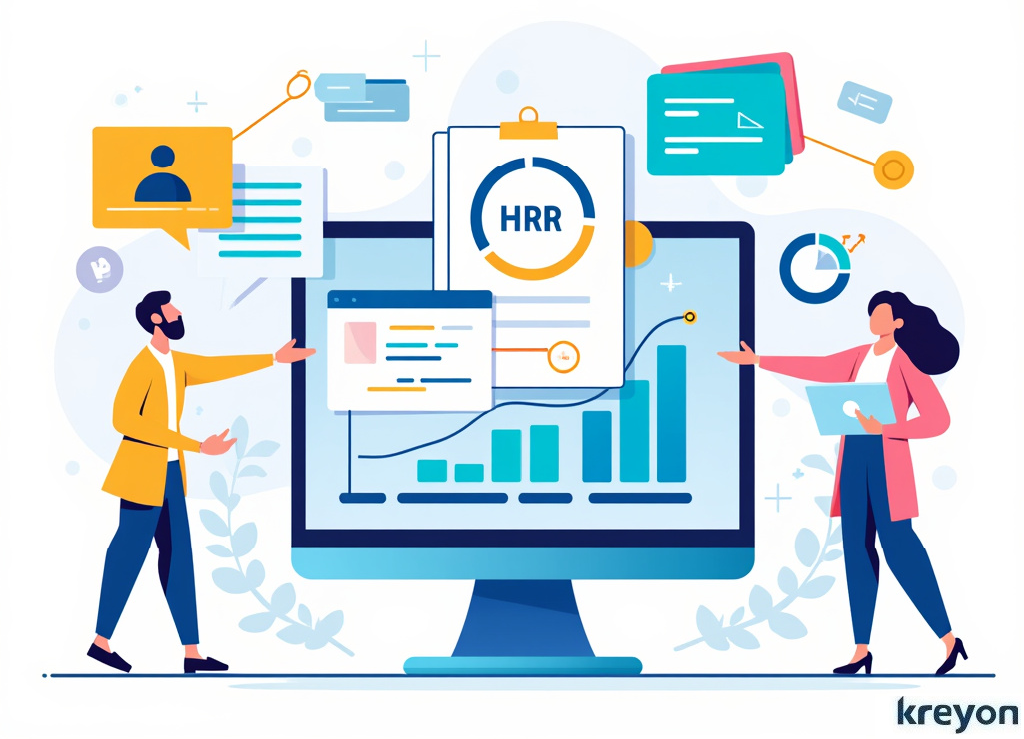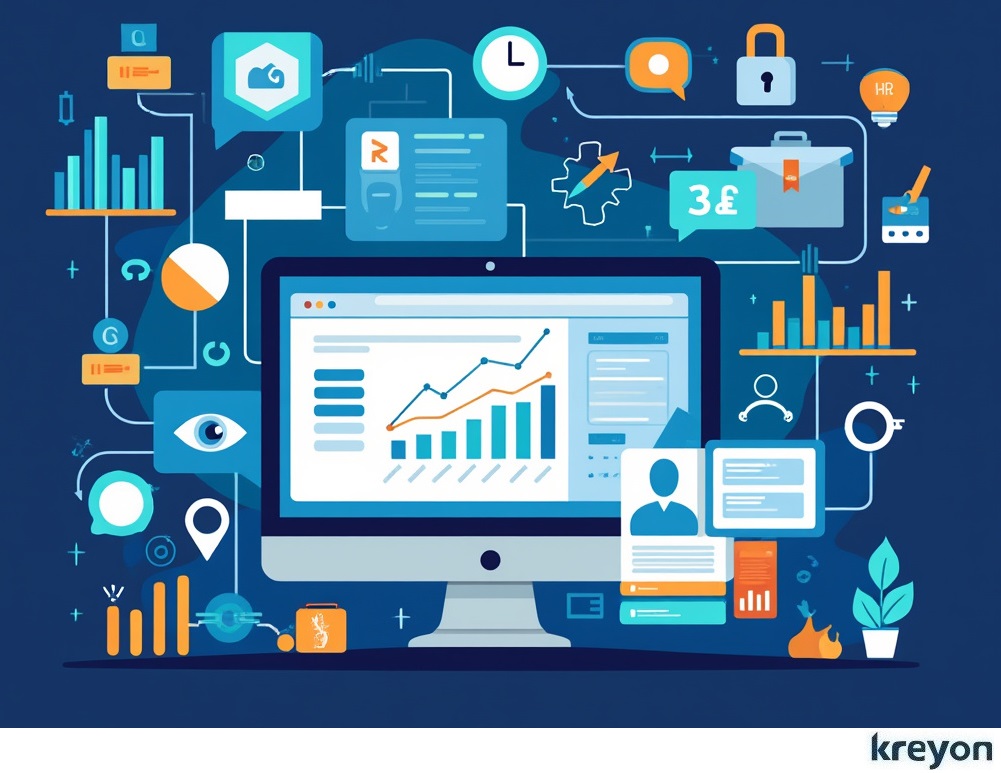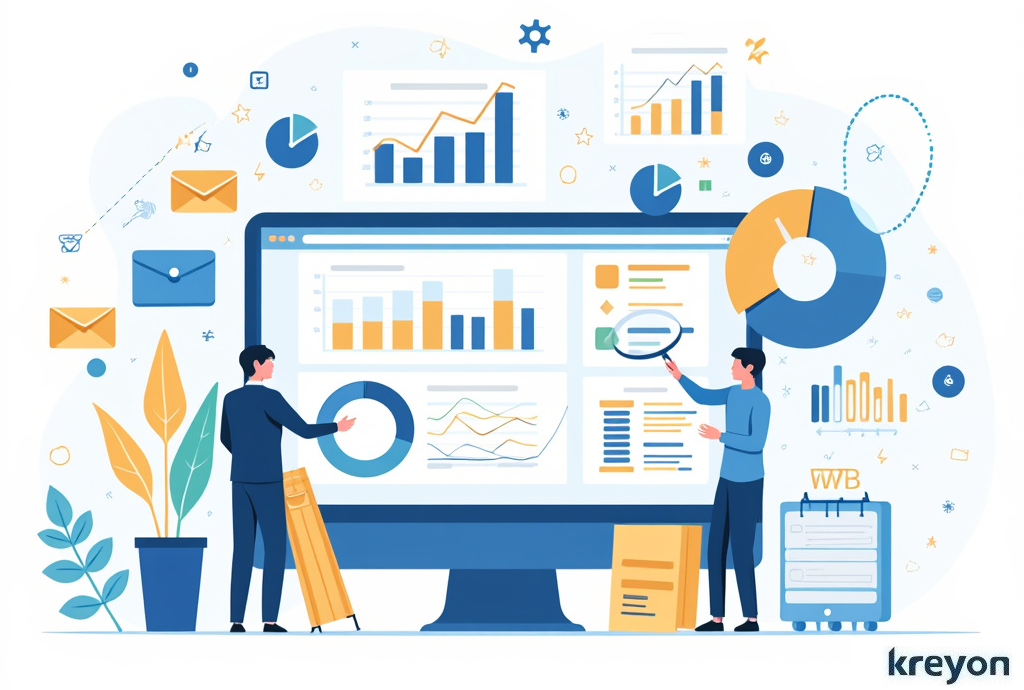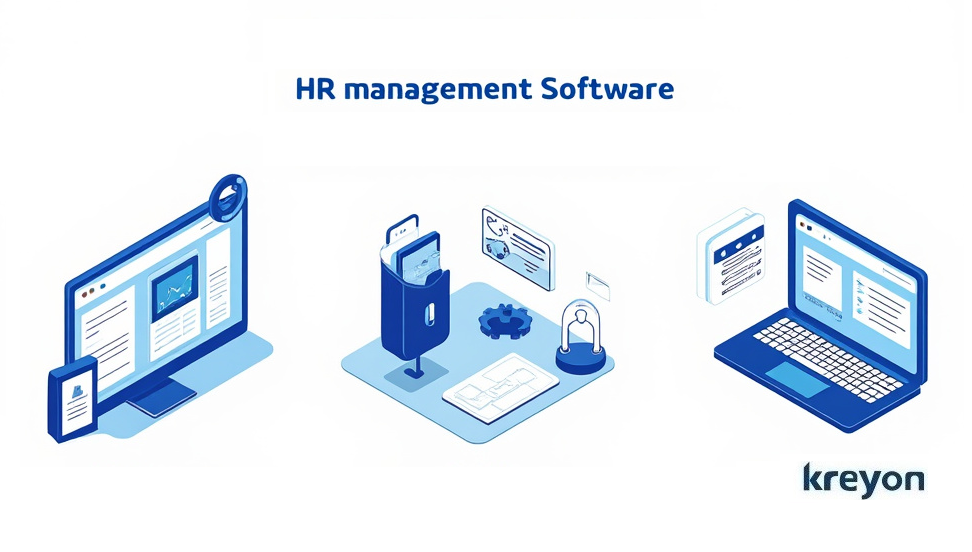How HR Management Software Enhances Compliance in HR Practices

In an era where regulatory requirements are constantly evolving, ensuring compliance within human resources (HR) practices has become a critical concern for organizations. HR management software plays a pivotal role in streamlining compliance processes, mitigating risks, and fostering a culture of accountability.
From labor laws to data protection regulations, businesses must ensure they meet a range of requirements to avoid penalties, ensure regulatory compliance, and evade reputational damage.
This is where HR Management Software can make a substantial difference. With automated tracking, reporting, and documentation capabilities, HR software not only eases the burden on HR teams but also significantly enhances compliance in HR practices.
In this article, we’ll explore how HR Management Software helps organizations streamline compliance, improve record-keeping, and avoid costly mistakes.
The Role of HR Management Software in Compliance
HR Management Software encompasses a range of digital solutions designed to manage core HR functions such as employee records, payroll, timekeeping, performance reviews, and benefits administration.
By leveraging these tools, companies can automate compliance tasks, minimize human error, and maintain a record of activities that is always audit-ready.
Many business owners see HR software as a smart investment, as it reduces the time and effort required for compliance and decreases the risks of non-compliance. Here’s how HR Management Software makes it possible.
Key Compliance Areas Supported by HR Management Software
1. Labor Law Compliance
 Labor laws, such as the Fair Labor Standards Act (FLSA) and Family and Medical Leave Act (FMLA), require that businesses track and report on employee work hours, overtime, and paid leave. HR software enables organizations to:
Labor laws, such as the Fair Labor Standards Act (FLSA) and Family and Medical Leave Act (FMLA), require that businesses track and report on employee work hours, overtime, and paid leave. HR software enables organizations to:
Automate Time and Attendance: HR software provides digital time-tracking capabilities that automatically calculate hours worked, overtime, and leave, ensuring that organizations stay compliant with labor laws.
Track Overtime Accurately: Calculating overtime manually can lead to errors that expose a business to legal risks. HR Management Software ensures that overtime is calculated based on local and federal labor laws, reducing errors and saving time.
Document Employee Leaves: In cases of medical leave or family leave, HR software can maintain detailed records, helping employers stay compliant with FMLA and similar state laws.
By reducing the need for manual tracking, HR software makes compliance with labor laws more manageable and less error-prone.
2. Data Privacy and Security Compliance
HR teams handle sensitive employee information, from social security numbers to banking details. Compliance with data protection laws, like the General Data Protection Regulation (GDPR) and the California Consumer Privacy Act (CCPA), is crucial.
Here’s how HR software enhances data privacy compliance:
Encryption and Access Control: HR software often includes data encryption and secure access controls to protect sensitive information. By limiting access to authorized personnel only, HR software minimizes the risk of data breaches.
Automated Data Retention and Deletion Policies: To comply with data protection laws, companies need to delete or archive employee data after a certain period. HR Management Software can automate these processes, ensuring that data is retained or deleted according to policy.
Compliance with Data Requests: Under regulations like GDPR, employees have the right to access their personal data. HR software enables companies to respond promptly to data requests, enhancing compliance with data privacy laws.
By centralizing and securing employee data, HR Management Software reduces the risk of data breaches and helps organizations adhere to privacy regulations.
3. Payroll Compliance
 Accurate payroll processing is essential for compliance with wage and hour laws. Errors in payroll can result in fines and legal action. HR Management Software can help businesses:
Accurate payroll processing is essential for compliance with wage and hour laws. Errors in payroll can result in fines and legal action. HR Management Software can help businesses:
Automate Tax Calculations: Payroll taxes can be complex, especially with changing tax rates and regulations. HR software calculates and applies the correct payroll taxes, reducing the risk of underpayment or overpayment.
Manage Pay Frequencies: Different states have different pay frequency requirements. HR Management Software enables businesses to set up and manage multiple pay schedules to meet these legal requirements.
Maintain Payroll Records: Proper record-keeping is a legal requirement in many jurisdictions. HR software stores detailed payroll data, making it easy to retrieve records during an audit.
Automated payroll processes make it easier for businesses to ensure accurate, compliant payroll processing every time.
4. Anti-Discrimination and Equal Employment Opportunity Compliance
Many countries have laws requiring equal employment opportunities (EEO) and prohibiting discrimination based on factors like race, gender, and disability. HR Management Software can facilitate compliance by:
Tracking Diversity Data: Many HR systems allow businesses to track diversity data, which is often required for reporting purposes. This feature can help businesses meet equal employment obligations and support diversity initiatives.
Standardizing Hiring Processes: Bias in hiring practices can lead to discrimination claims. HR software standardizes and documents each step of the recruitment process, reducing bias and providing a record of hiring practices if needed.
Creating a Transparent Evaluation Process: Performance management tools within HR software ensure that employee evaluations are based on objective, measurable criteria, minimizing discrimination risks.
By tracking and standardizing processes, HR Management Software helps companies reduce the risk of unintentional discrimination.
5. Health and Safety Compliance
 For businesses in industries with specific health and safety regulations, HR Management Software can be essential in managing compliance with OSHA standards and other regulations. HR software helps in:
For businesses in industries with specific health and safety regulations, HR Management Software can be essential in managing compliance with OSHA standards and other regulations. HR software helps in:
Tracking Health and Safety Incidents: HR software can record incidents, track the resolution of workplace safety issues, and store required documentation. This record-keeping is essential for audits and compliance with OSHA.
Automating Safety Training and Certification Tracking: HR software can manage safety training programs and ensure that employees are up to date on their certifications, reducing liability and enhancing workplace safety.
Supporting Remote Work Safety Compliance: As remote work grows, HR software can document ergonomic assessments or training, keeping businesses compliant with health and safety regulations for home offices.
With these capabilities, HR Management Software enables companies to meet health and safety regulations with greater ease.
6. Automated Compliance Tracking
Many HR management systems come equipped with tools that automatically track compliance with federal, state, and local regulations. This includes monitoring changes in labor laws and alerting HR professionals about necessary updates to policies or procedures.
By automating this process, organizations can stay informed about compliance requirements without the manual effort that often leads to oversights.
Risk Mitigation: By automating compliance processes and maintaining accurate records, HR management software significantly reduces the risk of human error—one of the leading causes of non-compliance issues.
Audit Trails: Organizations can quickly access historical data regarding policy changes, employee records, and compliance-related actions.
Streamlined Reporting: Compliance reporting is a critical aspect of HR practices. HR management software simplifies the generation of compliance reports by providing templates and automated data collection features.
Centralized Data Management: HR software provides a centralized platform for storing employee data, making it easier to manage records related to hiring, training, performance evaluations, and disciplinary actions.
How to Choose Compliance-Driven HR Management Software
When selecting HR Management Software to enhance compliance, companies should look for key features that support regulatory needs:
Customization Options: Each business has unique compliance requirements based on location, size, and industry. HR software with customizable features allows companies to tailor compliance settings to meet their specific needs.
Integrated Compliance Updates: Compliance requirements change frequently, and HR software that offers automatic regulatory updates helps companies stay ahead of new laws.
Comprehensive Reporting: Detailed reporting tools allow HR teams to generate compliance reports easily, especially useful for audits or regulatory reviews.
Audit Trail Capabilities: Look for software that offers audit trails to record actions taken within the system. These logs can serve as evidence of compliance efforts if an issue arises.
With these features, companies can choose HR software that fits their unique compliance needs and simplifies adherence to legal standards.
The Future of Compliance in HR Management Software
As regulations evolve, so will the capabilities of HR Management Software. In the future, we can expect to see:
AI-Powered Compliance Monitoring: AI can help detect potential compliance issues by analyzing patterns in employee behavior, attendance, or payroll, providing early alerts for potential violations.
Enhanced Data Privacy Tools: As data protection regulations increase, HR software will integrate more advanced data privacy controls, such as differential privacy and anonymization.
Increased Integration with Government Systems: Future HR Management Software may have direct integrations with government databases to simplify compliance tasks, such as employment eligibility verification.
By keeping pace with these advancements, businesses can continue to leverage HR software to stay compliant and efficient.
Conclusion: The Compliance Benefits of HR Management Software
HR compliance is a priority that can’t be ignored. HR Management Software helps simplify compliance processes, reduce manual work, and ensure that essential tasks are consistently carried out according to legal standards.
By automating compliance-related tasks, standardizing HR processes, and maintaining accurate records, HR software protects businesses from potential legal risks and allows owners to focus on growth.
Embracing HR software as a compliance tool is not only a smart investment but also a critical step toward a more secure and transparent workplace.
Streamline your HR processes with Kreyon Systems HRMS software. Automate tasks, boost productivity, and elevate your workforce. If you have any queries, please reach out to us.
